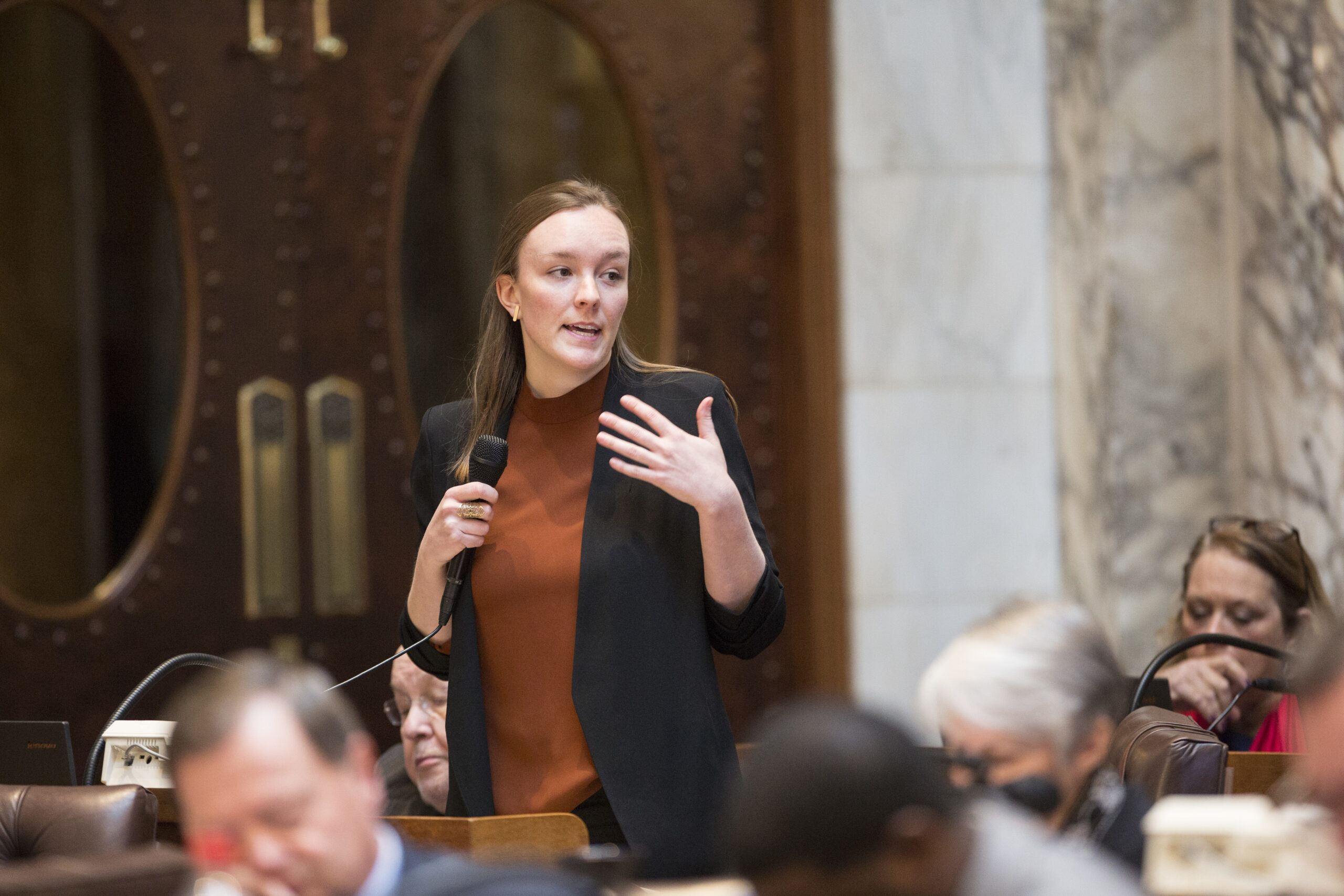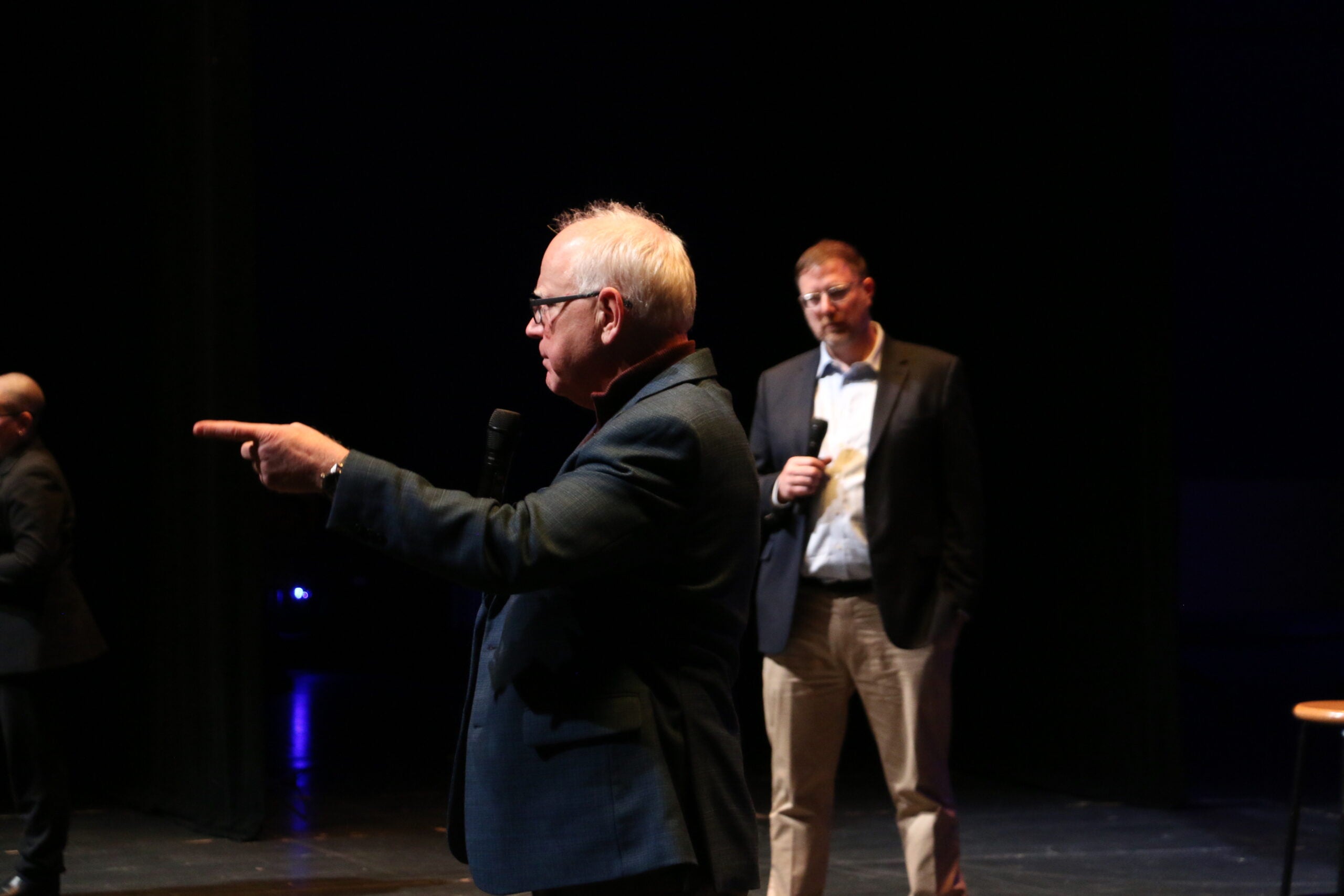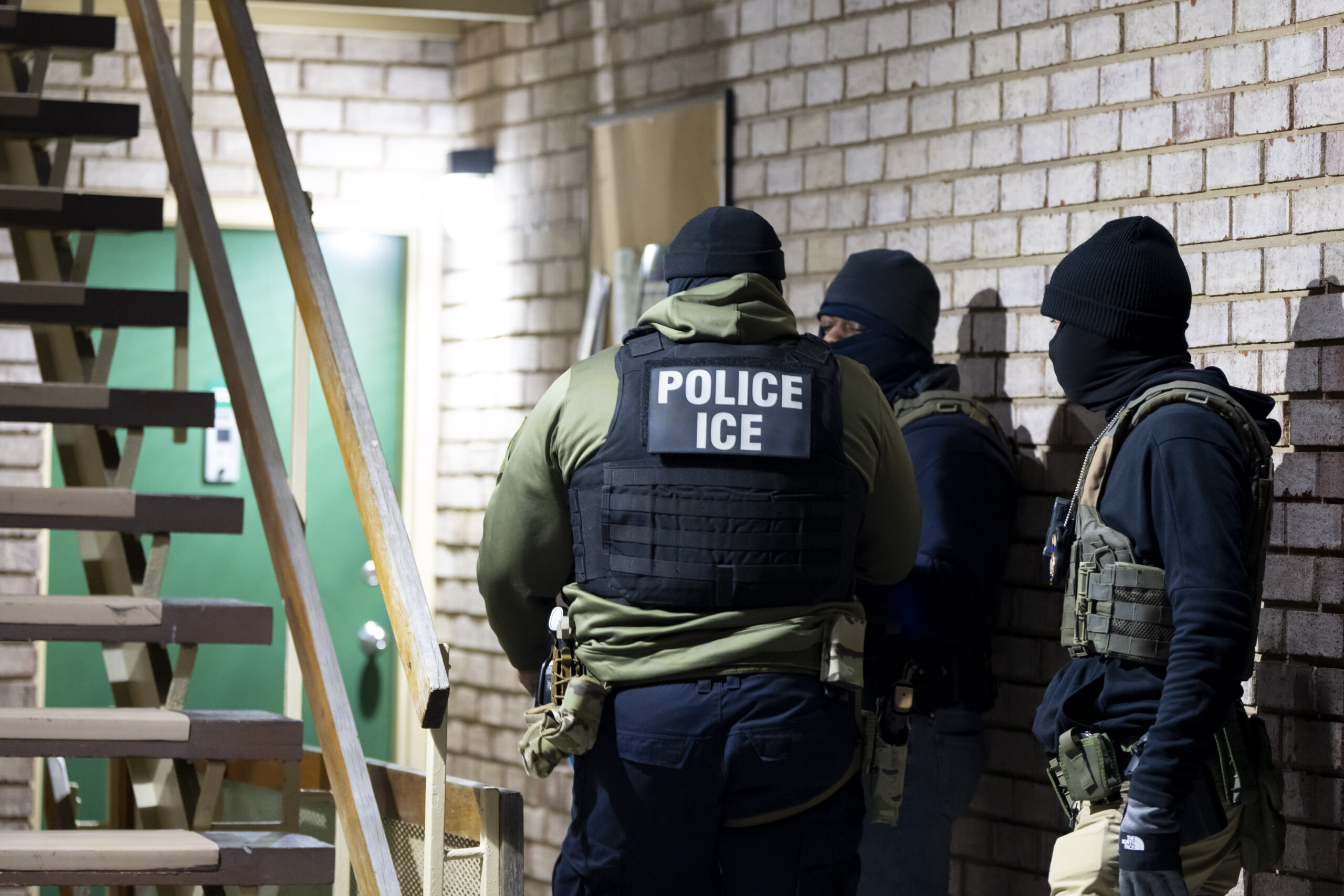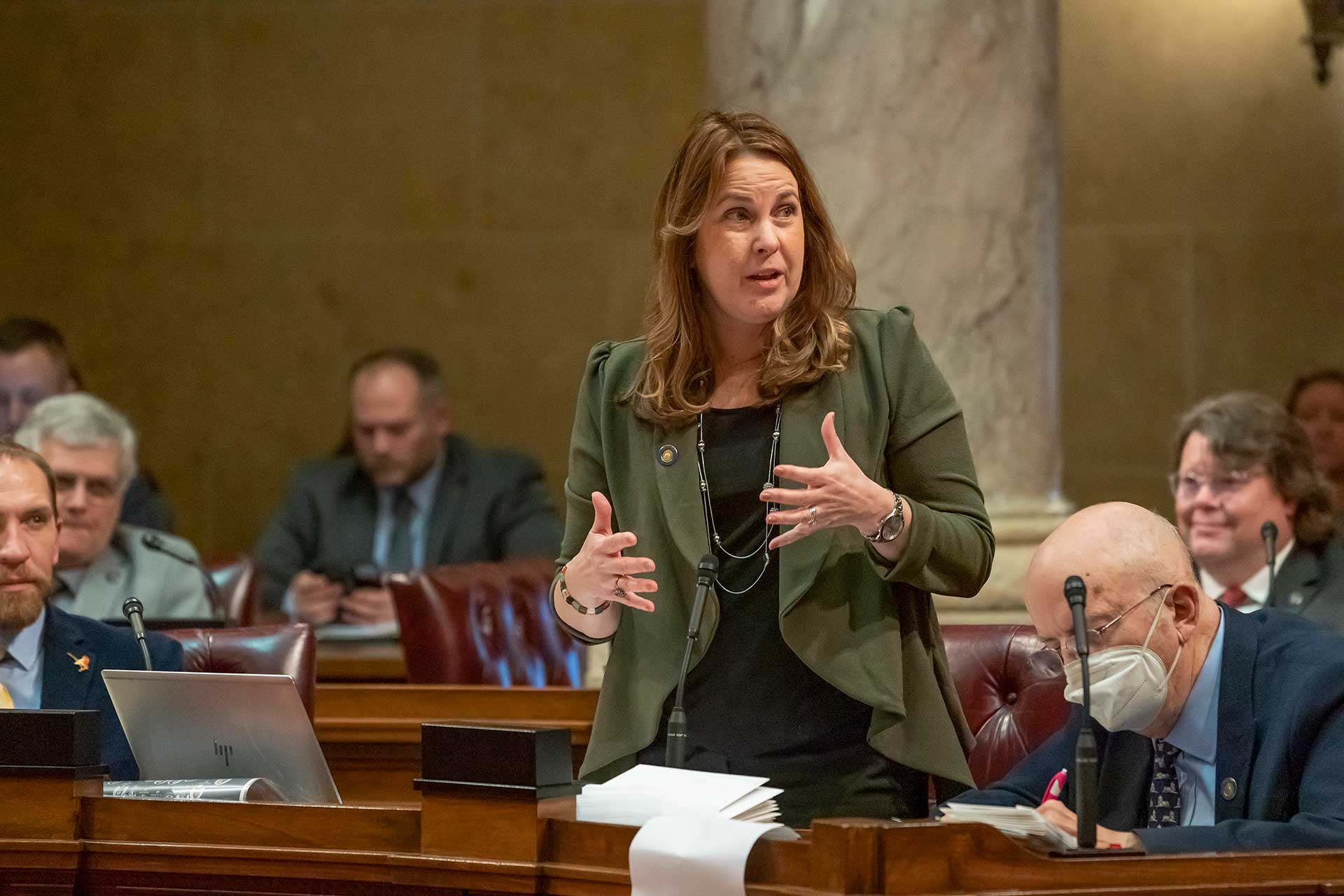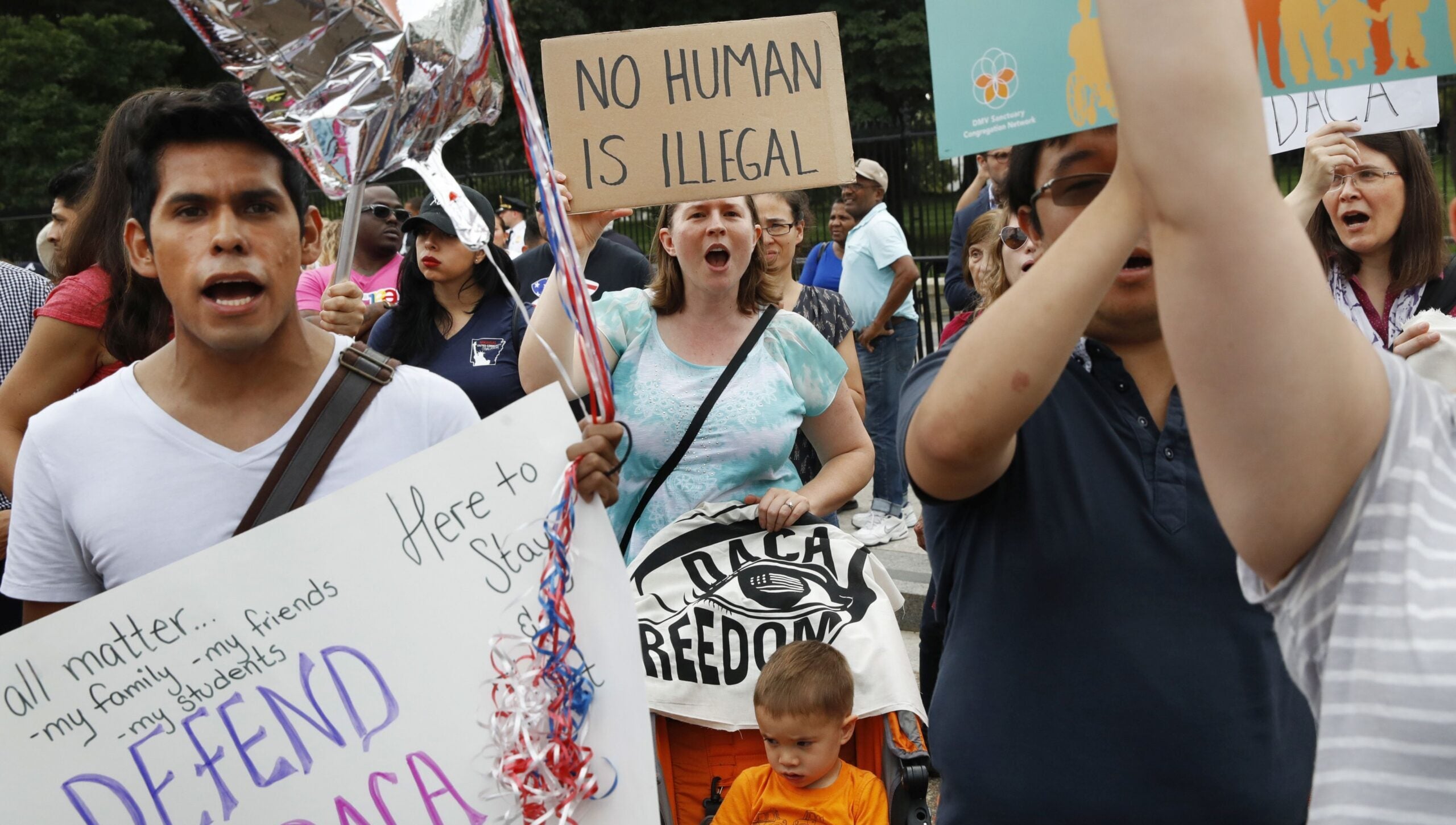State Assembly Minority Leader Greta Neubauer said Democrats plan to “push back” against President-elect Donald Trump’s campaign pledge to deport millions of immigrants.
But the Racine Democrat said her party is still working to figure out what can be done at the state and local level.
She told WPR that Democrats have been meeting with Gov. Tony Evers and local communities to “do what we can to push back against Trump’s agenda.”
Stay informed on the latest news
Sign up for WPR’s email newsletter.
“We know that if they were to try to undertake mass deportations, there’s a significant legal requirement and that we need people to have adequate representation,” she said. “I think a lot of the planning that’s going on right now is trying to understand what levers are available and what kind of resources we’re going to need for those who are arrested or who are at risk of deportation, as well as resources and support for their families.”
While on the campaign trail, Trump repeatedly promised to carry out the “largest deportation in the history of our country,” and some Republican lawmakers in other states have begun rolling out local plans to support that effort.
Neubauer said that she’s heard concerns about that promise from immigrants and business owners, and argued that there could be a “broad coalition” of pushback against deportations.
“We know that we actually need more people to move to Wisconsin, given our demographic trends, and I hope that we will be able to form, you know, broad coalitions of people, spanning those who feel that deporting our friends and neighbors is wrong to those who employ immigrants and everybody in between,” she said.
Neubauer spoke to WPR as part of its year-end coverage interviewing leaders from both parties about their priorities for 2025.
Chief among those priorities for Democrats will be school funding, said Neubauer. That’s already been a topic of debate after Wisconsin Superintendent Jill Underly said in November that the Department of Public Instruction is seeking just over $4 billion in new spending, pulling largely from the state’s surplus.
Assembly Speaker Robin Vos, R-Rochester, whose party will ultimately write the state budget, later said that request wasn’t “serious.” His party has repeatedly proposed using that surplus for tax cuts.
Neubauer said that she would not vote for a state budget that doesn’t significantly invest in public schools.
“We really have not been keeping up our end of the bargain at the state level; we’ve seen community after community go to referendum to fund their public schools, and our kids deserve better,” she said.
And Neubauer argued that with an increased Democratic presence in the Assembly, there may be more opportunity for bipartisanship in the upcoming legislative session, which begins in January.
Democrats gained 10 seats in the chamber in November’s election, the first Assembly election with redistricted legislative maps drawn by Evers, but remain in the minority.
Neubauer said she had hopes for some bills that have bipartisan support, including one that would expand Medicaid access for new mothers.
Without naming Vos directly, she blamed Republican leaders for not bringing that bill to the floor, even though it was co-sponsored by people of both parties, and argued that — with fewer safe seats across the state — Republicans may face increased pressure to work across the aisle.
“I anticipate more members of the Republican caucuses pushing this year and saying, ‘Listen, I’ve got to go home, and I’ve got to explain why something did or didn’t happen, and I want to see progress on the issues that are most important to my constituents,’” she said.
Wisconsin Public Radio, © Copyright 2025, Board of Regents of the University of Wisconsin System and Wisconsin Educational Communications Board.
